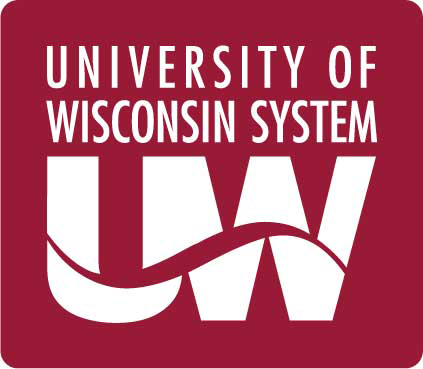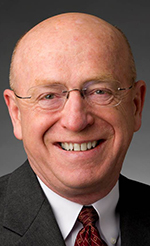Blocked by a former co-worker on Facebook after pointing out a fake news item, University of Wisconsin-Stout senior Madalaine McConville decided she wanted to do more research into how political views impact interpersonal relationships.
McConville, an applied social science major from Augusta, is one of five UW-Stout students presenting her research at the 17th annual Research in the Rotunda from 10:30 a.m. to 2:30 p.m. on Wednesday, March 11, in the Capitol Rotunda in Madison. Her research is entitled “Democracy and Interpersonal Relationships in Danger: Political Divisiveness.”
“Ever since the 2016 presidential election I was interested in political polarization,” McConville said. “Last year I did research on (President) Trump’s impact on polarization in Congress.”
 For her research, McConville sent surveys to 2,500 UW-Stout students. About 500 responded, which was a good response rate, she noted. She asked them about their political preferences, if the 2016 election impacted their political affiliations and how they would react if they found out a friend or someone they were dating had a different political affiliation. She also asked the respondents their opinions on gun rights, abortion and civil rights.
For her research, McConville sent surveys to 2,500 UW-Stout students. About 500 responded, which was a good response rate, she noted. She asked them about their political preferences, if the 2016 election impacted their political affiliations and how they would react if they found out a friend or someone they were dating had a different political affiliation. She also asked the respondents their opinions on gun rights, abortion and civil rights.
Those who had far conservative or far liberal views tended to be more intolerant than people who do not hold extreme political values. In her research, McConville found that those who held extreme political values were 29% points more likely not to date someone with different political views versus those with more moderate viewpoints. Those who identified as Democrats were 4.1% points more likely to not be friends with someone having different political views. Republicans were 4.8% more likely to avoid someone with different political views.
“The results didn’t surprise me at all,” McConville said. When the former co-worker clearly posted fake news, McConville said she responded with a neutral fact-checking site. “If I posted something that was fake news, I hope someone would check me too,” she noted.
While reviewing prior research, McConville said she learned people who are in the extreme left or right of political vies stay in an echo-chamber only wanting to read or listen to news that support their beliefs.
“The biggest thing I want to stress is it is important to remember even though we have different political views, we’re not all that different,” McConville said. “If people can’t talk to people with different political views, we can’t expect our government representatives to.”
This is McConville’s second year at Research in the Rotunda. Last year she shared research on the “School to Prison Pipeline.” It researched the impact of having police presence and heightened security in schools and if it made students feel safer. She determined that extra security had the opposite effect making students misbehave because they felt like they were in a prison-like environment. Social workers hired to work with students were a better option to curb violence.
McConville, who is the Legislative Affairs Director for the Stout Student Association, said she enjoys sharing her studies at Research in the Rotunda and meeting various state representatives and sharing research with them and community members.
“It’s nice to look at other research and see what other schools are doing,” she noted.
UW System President Ray Cross said the Research in the Rotunda projects “embody the personal and intellectual growth experienced by the students who created them. They are tangible representation of the UW System’s ongoing commitment to build the talent pipeline and to expand knowledge and ideas that are instrumental to the state’s success.
“Engaging in undergraduate research is a proven practice that leads to student success, not only in school, but also in future careers,” Cross added. “The students’ research also has the potential to inform public policy and decisions made by the private sector to help resolve the complex challenges our local, state and global communities face.”
Other UW-Stout students taking part in Research in the Rotunda include:
- Brandon Beaulieu, Sun Prairie, senior, psychology, “Demographic Analysis of Bias and Privilege at a Small Midwestern University”
- Cassandra Boulanger, New Franklin, senior, applied social science, and Daniel Polson, Menomonie, senior, applied social science, “The Influence of Media on Statewide Political Knowledge and Attitudes: Gerrymandering in Wisconsin”
- Choua Xiong, Milwaukee, senior, dietetics, “The Exploration of the Hmong Diet Among Hmong Students”
Photos
UW System logo
Ray Cross




